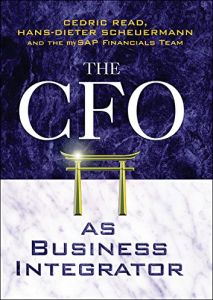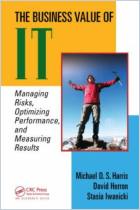Join getAbstract to access the summary!

Join getAbstract to access the summary!
Cedric Reid and Hans-Dieter Scheuermann
The CFO as Business Integrator
Wiley, 2003
What's inside?
Should the CFO be involved in integrating IT systems? Yes, because IT questions get answered by the bottom line.
Recommendation
A cynic might be tempted to sneer at a book published by a major Enterprise Resource Planning (ERP) software vendor - specifically, SAP - urging CFOs to make better use of ERP. This software is intended to tie all business functions together in a commonly accessible bundle. Having overspent on this and other information technologies, many executives question its value. Indeed, a recent Harvard Business Review article carried in its title the blunt, provocative suggestion that, "IT Doesn’t Matter." Well, these authors believe it matters, because the IT processes and systems that the CFO supports directly affect the bottom line. The book offers valuable case histories, specific technological and managerial counsel, informative charts and candid input from executives. It covers the CFO’s perspective on integrating information technology processes into a company’s services, supply chains, culture and analytics. Each chapter ends with a useful "CFO Checklist." The cases are promotional and very tech-friendly, so read between the lines. This book is, after all, a marketing initiative. Still, getAbstract.com finds the text specific, knowledgeable and worth reading.
Summary
About the Authors
Consultant Cedric Reid leads CCR Partners Ltd., whose clients have included Shell, BP, Diageo and GlaxoSmithKline. He serves as strategic advisor to SAP AG, and has written two books: CFO: Architect of the Corporations Future and eCFO: Sustaining Value in the New Corporation. Hans-Dieter Scheuermann is senior vice president of SAP’s General Business Unit Financials.





















Comment on this summary